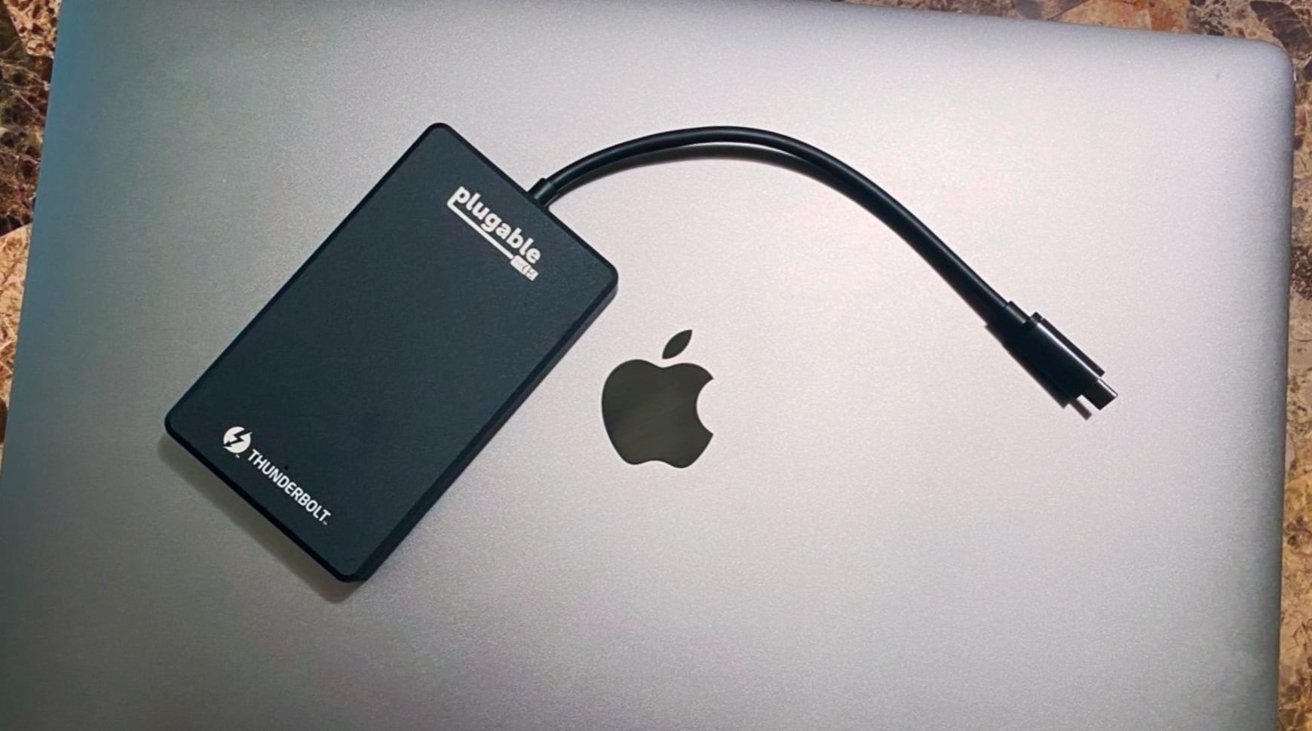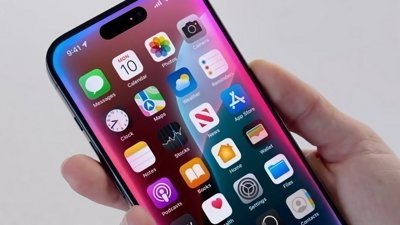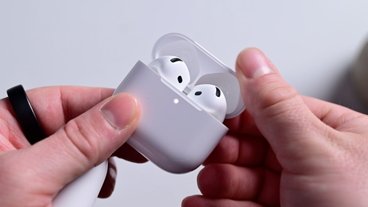The ability to boot from an external drive on an Apple Silicon Mac may not be an option for much longer, with the creation and use of the drives apparently being phased out by Apple, according to developers of backup tools.
For some users, the ability to create a bootable drive for their Mac gives them a safety net, in case the main drive on the Mac breaks or encounters a problem. It is a backup technique that can get users back up and running very quickly, but the option may not be available for much longer with Apple's transition to Apple Silicon.
Mike Bombich, the founder of Bombich Software behind Carbon Copy Cloner, wrote in a May 19 blog post that the company will continue to make bootable backups for both Intel and Apple Silicon Macs, and will "continue to support that functionality as long as macOS supports it."
However, with changes in the way a Mac functions with the introduction of Apple Silicon, the ability to use external booting could be limited, in part due to Apple's design decisions.
The first problem is with macOS Big Sur, as Apple made it so macOS resides on a "cryptographically sealed Signed System Volume," which could only be copied by Apple Software Restore. While CCC has experience with ASR, the tool was deemed to be imperfect, with it failing "with no explanation" and operating in a "very one-dimensional" way.
The second snag was Apple Fabric, a storage system that uses per-file encryption keys. However, ASR didn't work for months until the release of macOS 11.3 restored it, but even then kernel panics ensued when cloning back to the original internal storage.
In December, Bombich spoke to Apple about ASR's reliability and was informed that Apple was working to resolve the problem. During the call, Apple's engineers also said that copying macOS system files was "not something that would be supportable in the future."
"Many of us in the Mac community could see that this was the direction Apple was moving, and now we finally have confirmation," writes Bombich. "Especially since the introduction of APFS, Apple has been moving towards a lockdown of macOS system files, sacrificing some convenience for increased security."
Spotting a change in a Product Security document in February, Bombich points out that it mentions the boot process in Apple Silicon Macs is always facilitated by a volume on the internal storage. The lightweight operating system on that volume evaluates the integrity of the boot assets and authenticates the operating system on that external device before booting from it.
"In theory, it means that Apple Silicon Macs cannot boot at all if the internal storage fails," he states. Experts within Apple "unambiguously confirmed" to Bombich that you cannot boot an Apple Silicon Mac from external boot drives if the internal storage is dead.
Bombich advises there needs to be changes to end user recovery plans to no longer rely on external boot devices. In the case of CCC, it won't provide the option to "make it bootable" by default when users are using macOS Big Sur.
While CCC won't drop the ability to copy the System folder, the tool is "going to continue to offer it with a best effort' approach." Meanwhile, for non-bootable data restoration, CCC's backups do still work with the macOS Migration Assistant, available when booting up a new Mac for the first time.
Stay on top of all Apple news right from your HomePod. Say, "Hey, Siri, play AppleInsider," and you'll get latest AppleInsider Podcast. Or ask your HomePod mini for "AppleInsider Daily" instead and you'll hear a fast update direct from our news team. And, if you're interested in Apple-centric home automation, say "Hey, Siri, play HomeKit Insider," and you'll be listening to our newest specialized podcast in moments.
 Malcolm Owen
Malcolm Owen




-xl-m.jpg)


-m.jpg)






 William Gallagher
William Gallagher
 Andrew Orr
Andrew Orr

 Christine McKee
Christine McKee
 Chip Loder
Chip Loder
 Thomas Sibilly
Thomas Sibilly
 Wesley Hilliard
Wesley Hilliard








36 Comments
CCC gets a 10 out of 5 on my ratings, I have restored my data on many occasions and I am really happy with version 6....
I just can’t see a future where an external boot-disc does not exist…or don’t want too. I just did a complete rebuild of my iMac Pro to clean it up. I first did a CCC of the internal boot SSD, making another SSD externally bootable. This was critical to keeping my workflow viable, in case the wipe/rebuild failed. The complete macOS Big Sur reinstall from the Mac Recovery went smoothly, only one minor glitch. But if I hadn’t solved that glitch, I’d been hosed for a while. CCC is one macOS’s most critical applications.
Uh, I haven't 'needed' to boot from an external drive in a couple of years, but this makes me nervous. So rather than fix a simple problem myself in minutes, I have to go to the monkeys reading from a script bar... I mean 'Genius Bar' when an appointment is available in several days?
Sounds a bit silly to me.